

The Wayang Office Plaza, 5th Floor
Jl. Kedondong No. 5A, RT.11/RW.9
Rawamangun, Pulo Gadung
East Jakarta, DKI Jakarta 13220
Indonesia

Telp: +6221 388-590-01
WhatsApp: +62 899-3300-033
WhatsApp SNI: +62 857-7042-1713

Opening : Mon – Fri, 8:00 – 16:00
Category: Uncategorized
-

Digital Door Lock: Modern Security Technology for Residential and Commercial Properties
The rapid development of security technology has transformed how people protect their homes and properties. One of the most popular innovations today is the digital door lock, an electronic locking system that replaces conventional mechanical keys with advanced digital authentication methods. Digital door locks are increasingly used in residential homes, apartments, offices, hotels, and commercial…
-
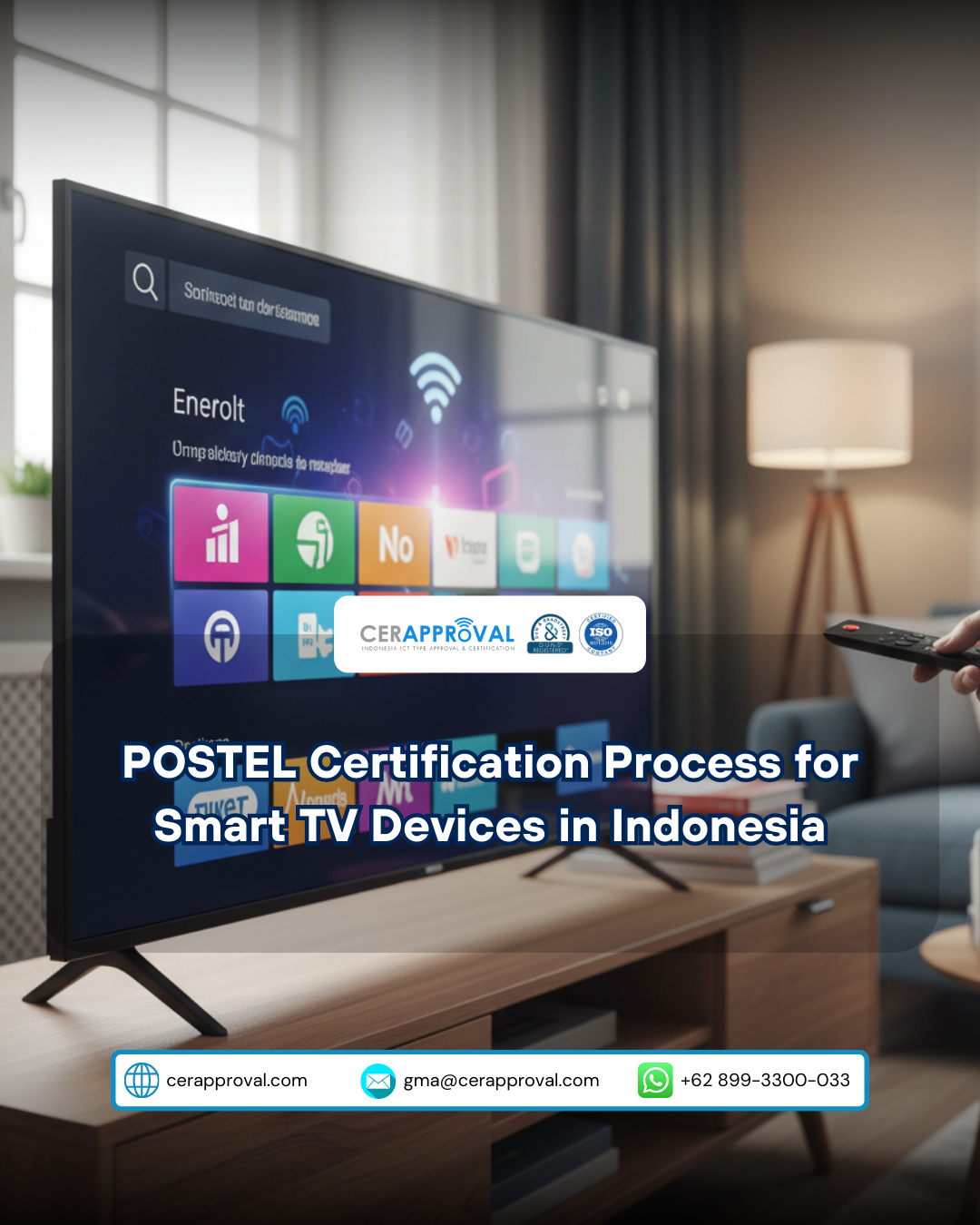
POSTEL Certification Process for Smart TV Devices in Indonesia
The Indonesian market for Smart TV devices continues to grow rapidly due to increasing digital consumption and smart home adoption. However, before Smart TVs can be legally distributed in Indonesia, manufacturers and importers must comply with national regulations, including obtaining POSTEL Certification. POSTEL certification is issued by the Ministry of Communication and Digital Affairs (Komdigi)…
-

Cerapproval Service Price Adjustment Announcement Effective January 5, 2026
Cerapproval hereby announces an update to its service pricing, which was implemented on January 5, 2026. This adjustment reflects the company’s ongoing efforts to align its services with evolving regulatory requirements, industry standards, and client expectations. As certification and product compliance processes continue to develop in scope and complexity, Cerapproval consistently enhances its operational systems,…
-
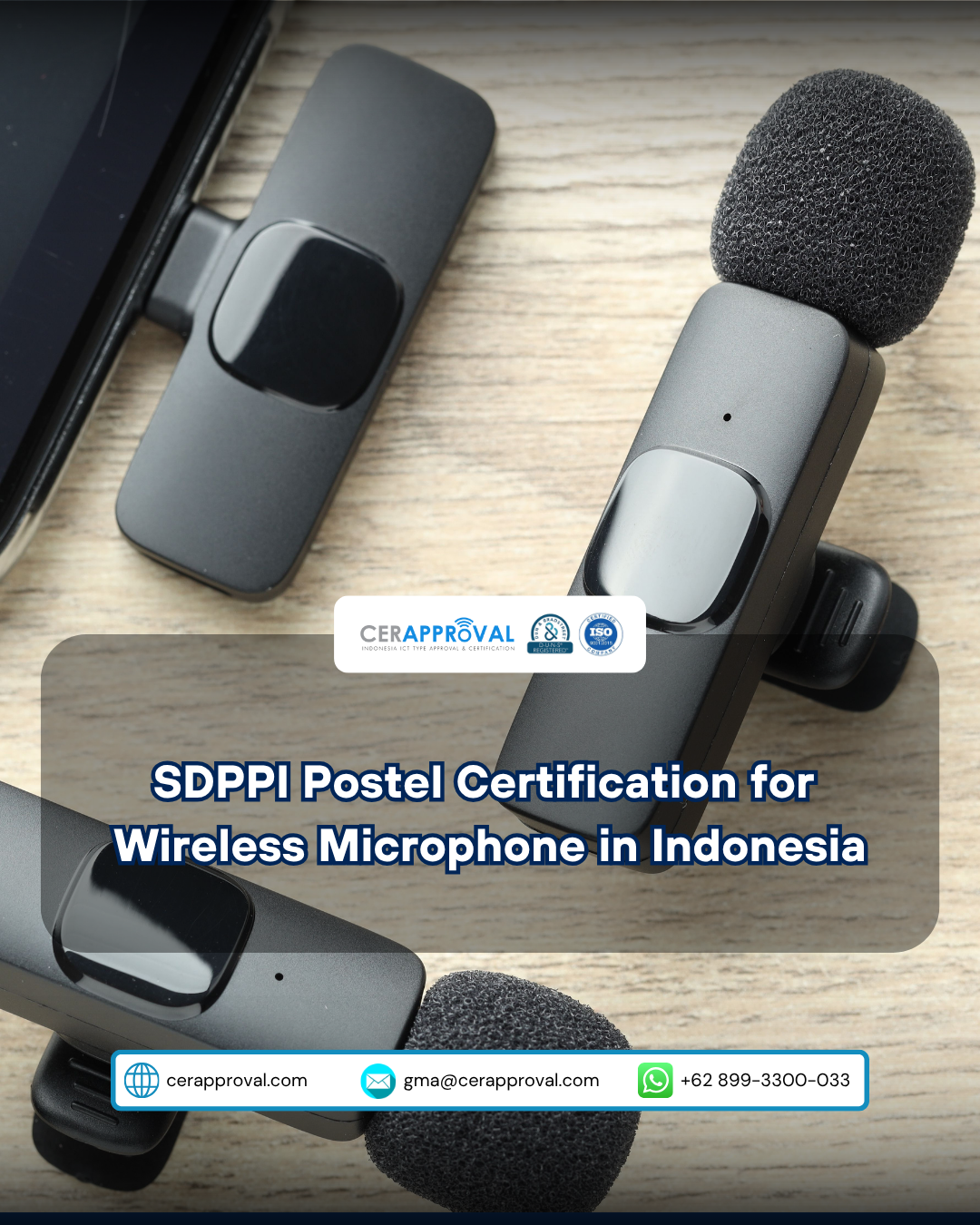
Wireless Microphone Certification Process in Indonesia
In today’s communication-driven era, wireless microphones are essential for professionals in television, live events, education, and religious activities.However, before being marketed or used legally in Indonesia, these devices must go through a certification process by DJID (Directorate General of Digital Infrastructure) under the Ministry of Communication and Digital (Komdigi). 1. Why Certification Is Required The…
-
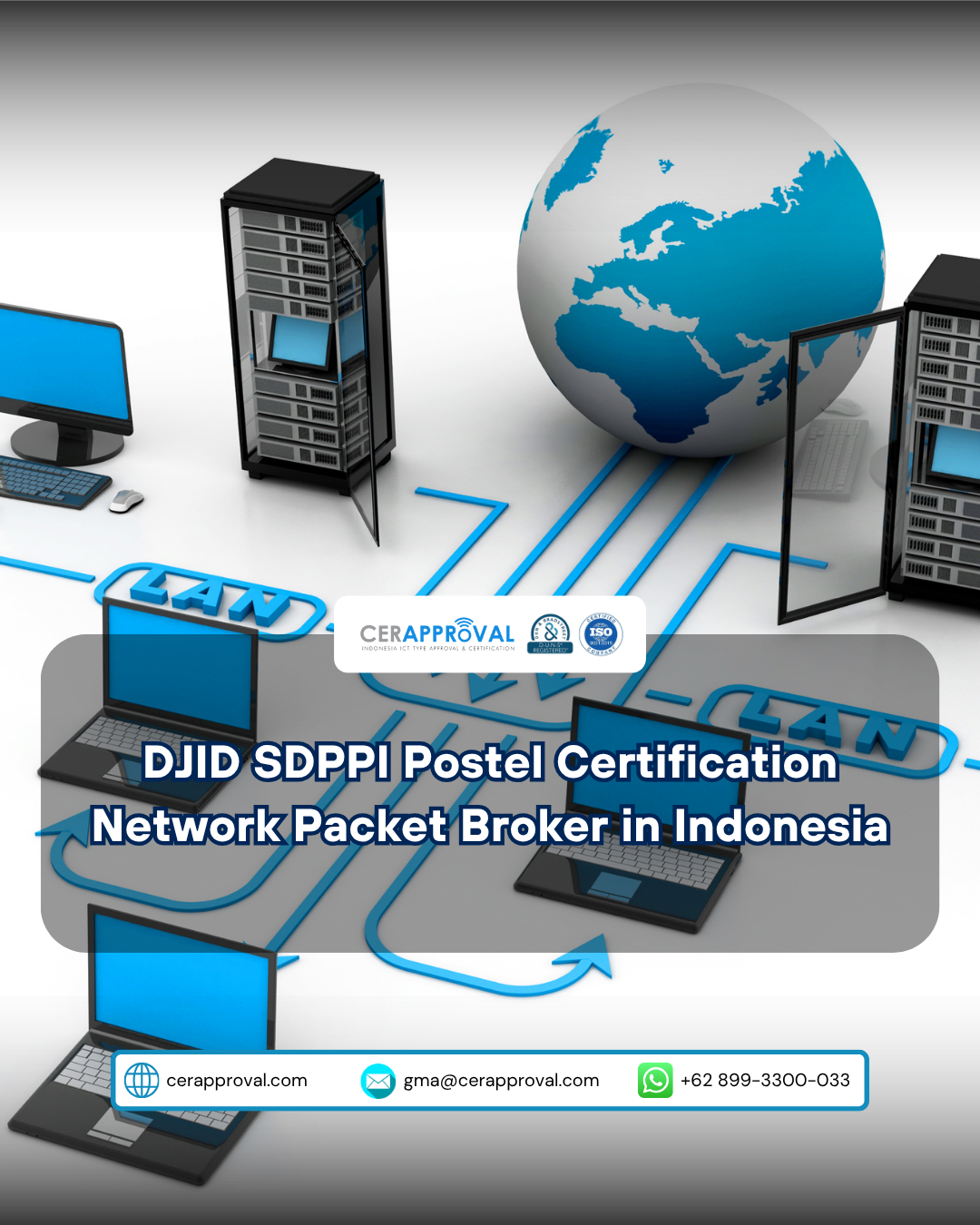
Network Packet Broker: Functions, Benefits, and Regulations in Indonesia
In today’s fast-moving digital era, network infrastructures handle massive amounts of data traffic. To ensure smooth operations, visibility, and security, organizations depend on a key network component — the Network Packet Broker (NPB).This intelligent device enables efficient monitoring, filtering, and management of data packets, ensuring that every byte of information is processed accurately and securely.…
-

K3L Certification Guide for Cordless Vacuum Devices and Why It Matters
In today’s fast-paced world, cordless vacuums have become a staple of modern living, offering convenience and flexibility. However, with innovation comes the responsibility to ensure that products are safe, reliable, and environmentally friendly. That’s where K3L Certification (Occupational Safety, Health, and Environment) plays a crucial role. Why Is K3L Certification Important for Cordless Vacuums? Cordless…
-

Why Massage Chairs, Massage Beds, and Massage Eye Devices Must Have K3L Certification
Relaxation and wellness products such as Massage Chairs, Massage Beds, and Massage Eye devices are growing in demand worldwide, including in Indonesia. However, before being sold in the market, these products must comply with K3L (Safety, Health, Security, and Environmental) certification requirements. This certification is not optional—it is a legal and safety necessity. Why is…
-
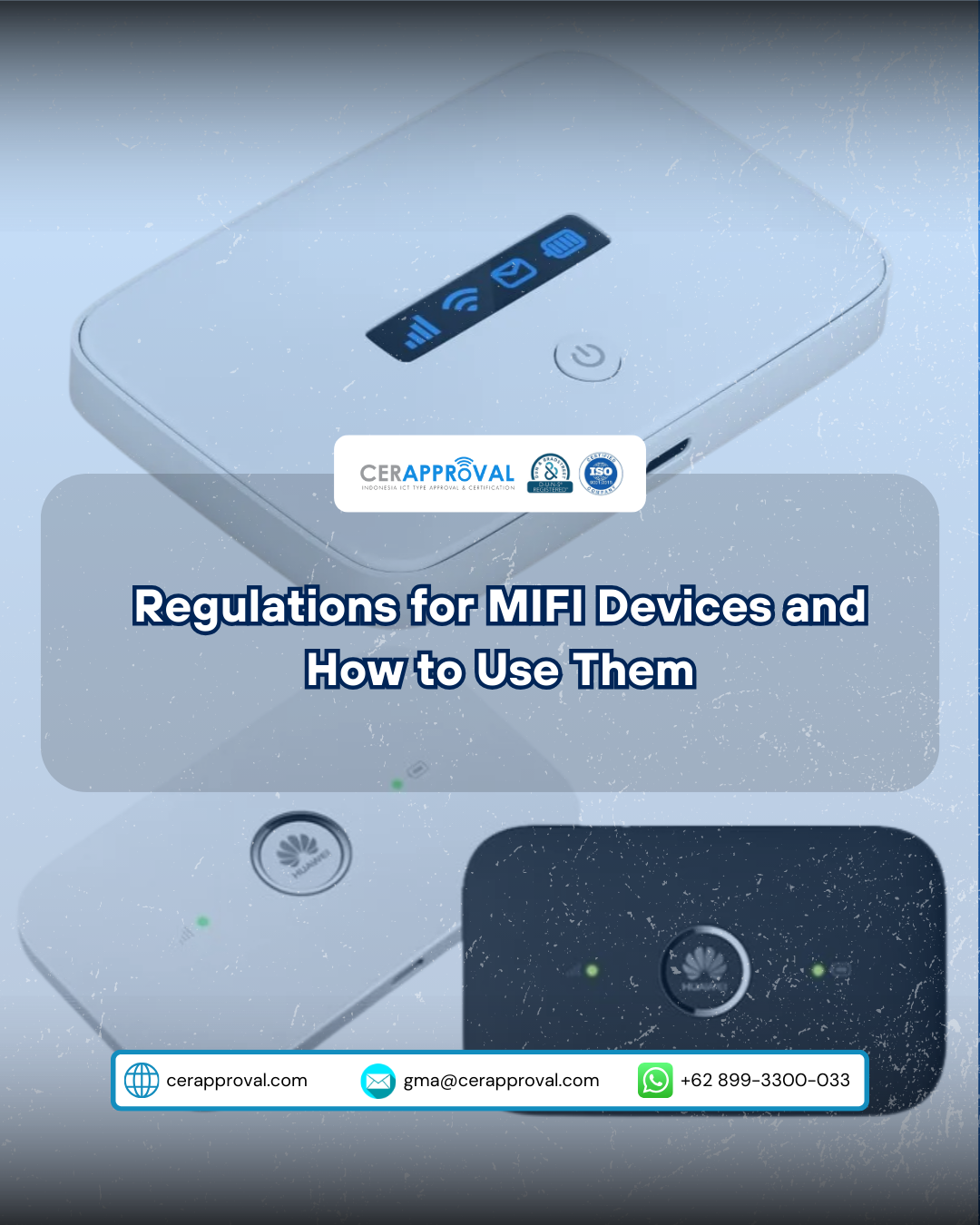
Regulations for MIFI Devices and How to Use Them
What is a MIFI Device? MIFI (Mobile Wi-Fi) is a small device that functions to create a WiFi hotspot from a cellular network signal (3G, 4G, 5G) that is fed through a SIM card. This device allows multiple devices such as smartphones, laptops, and tablets to connect to the internet simultaneously. MiFi is ideal for…
-
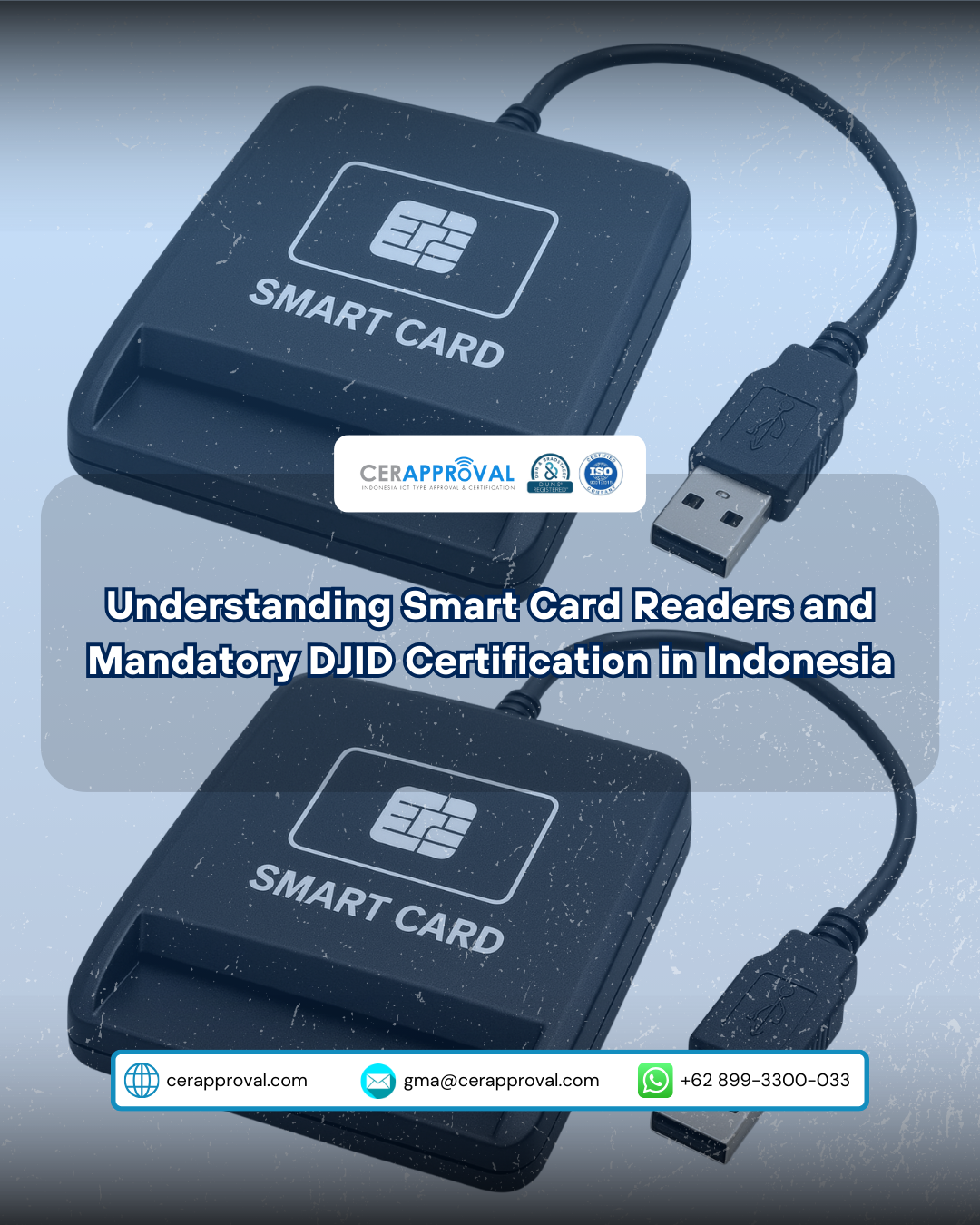
Understanding Smart Card Readers and Mandatory DJID Certification in Indonesia
In today’s digital era, data security and electronic identification are becoming increasingly important. One device that plays a key role in many industries is the smart card reader. This hardware is designed to read and process data stored in smart cards, which are embedded with secure chips. What is a Smart Card Reader? A smart…
-

Which Products Are Not Required to Have K3L Certification?
In today’s industrial and business landscape, K3L certification (Occupational Safety, Health, and Environment) is crucial to ensure compliance with government regulations. However, not every product circulating in the market is obligated to obtain this certification. Understanding which products are exempted from K3L requirements helps businesses reduce unnecessary costs while staying compliant with the law. What…
Ready To Start New Project With Intrace?
Lorem ipsum dolor sit amet, consectetur adipiscing elit, sed do eiusmod tempor incididunt ut labore et dolore magna aliqua.
